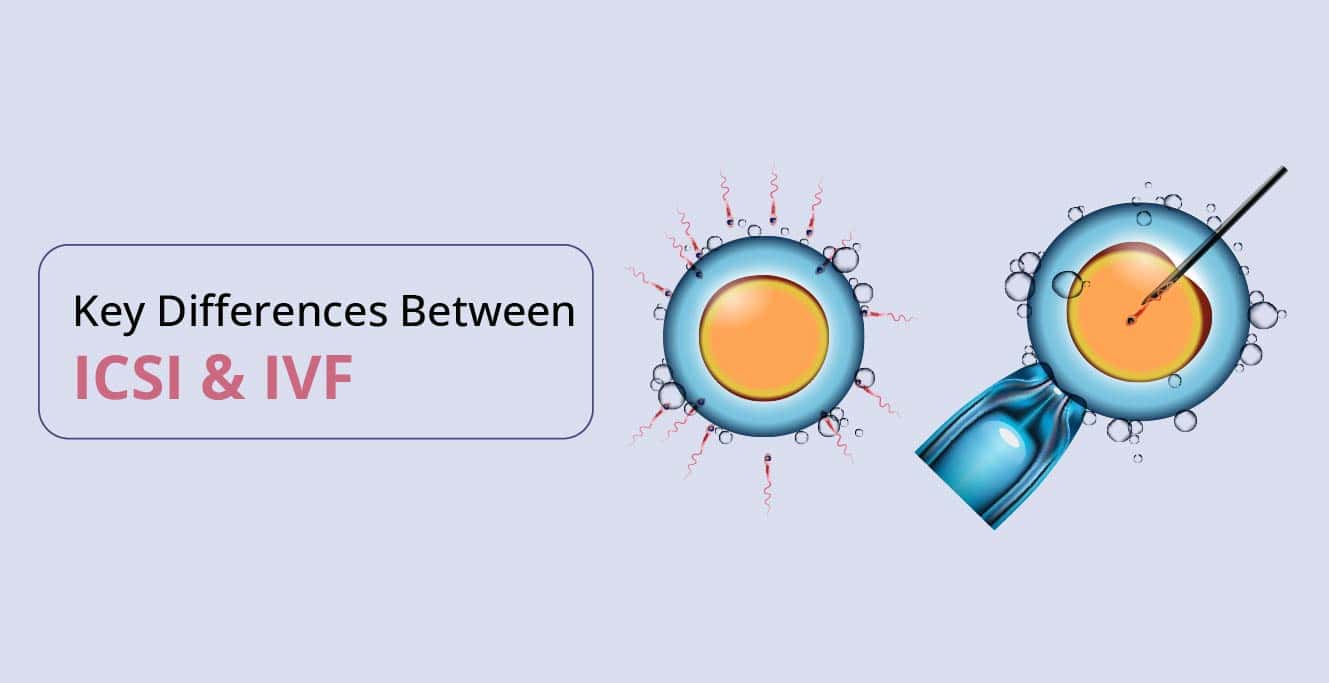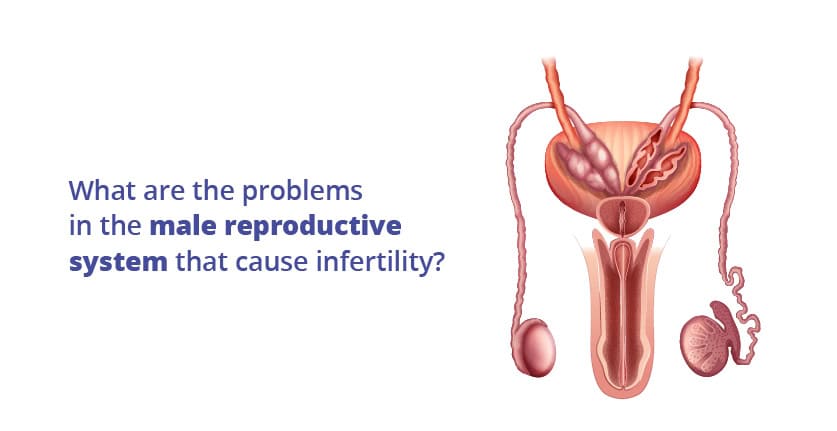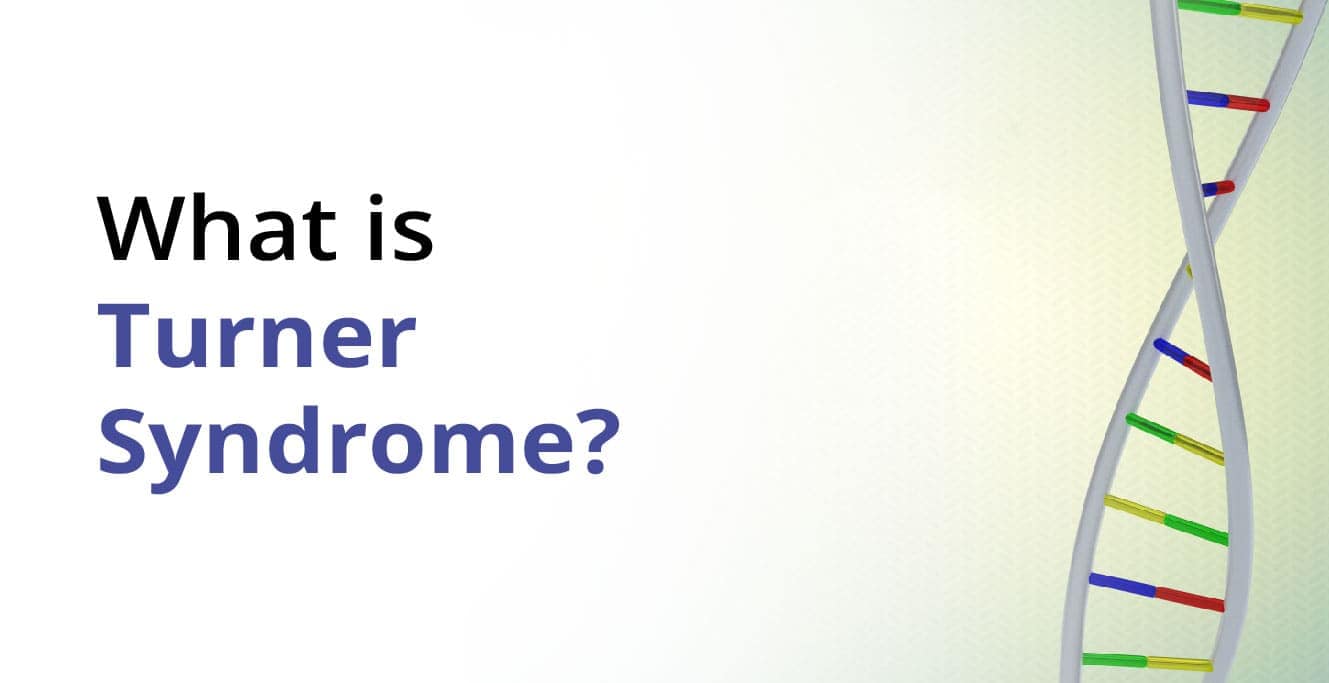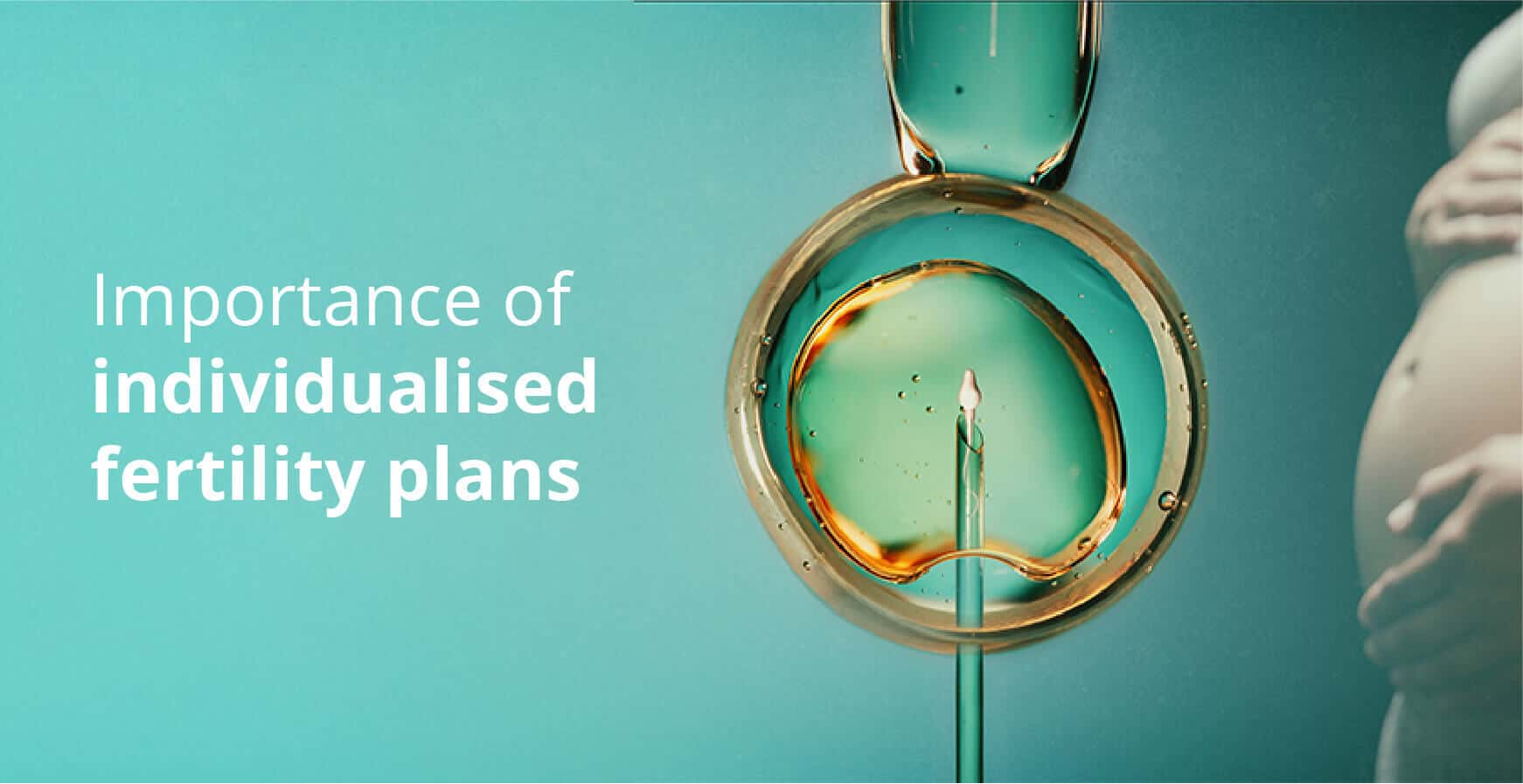ICSI vs IVF: Understanding the Key Differences
- Published on September 15, 2023

Intra Cytoplasmic Sperm Injection (ICSI) and In Vitro Fertilisation (IVF) have transformed the way couples with infertility issues can start a family after getting aid in the field of assisted reproductive technologies (ART). Those who are having trouble getting pregnant naturally have hope to achieve conception through these fertility treatments. In this detailed article, we will examine ICSI vs IVF, their procedures, significant distinctions, and information on the healing process.
Table of Contents
What is ICSI?
A specialised type of IVF called intracytoplasmic sperm injection (ICSI) is intended for situations of severe male infertility or when conventional IVF procedures have failed in the past. In order to facilitate fertilisation, this method entails injecting a single sperm directly into an egg that is mature. When there are problems with sperm quality, quantity, or motility, ICSI is very helpful since it gets around many of the potential barriers to fertilisation.
Procedure of ICSI Treatment
The following is the procedure of ICSI treatment explained step by step:
- Ovulation stimulation: The procedure starts with the female partner’s ovary being stimulated with hormones to create several mature eggs.
- Egg retrieval: When the eggs are ready, a minimally invasive process called transvaginal ultrasound-guided egg retrieval is used to retrieve them.
- Sperm Collection: Sperm samples are simultaneously taken from either the male spouse or a sperm donor.
- Sperm injection: One healthy sperm is directly inserted into each mature egg using a small needle and a specialised microscope.
- Culture and Embryo Transfer: The fertilised eggs, which are now embryos, are cultivated for a number of days before one or more are placed through a thin catheter into the woman’s uterus.
What is IVF?
A more widespread form of assisted reproduction technology called in vitro fertilisation (IVF) involves fertilising an egg with sperm outside the body, in a laboratory dish. This method is used to treat a variety of fertility problems, such as endometriosis, obstructed fallopian tubes, and unexplained infertility.
Procedure of IVF treatment
The IVF procedure is similar to ICSI but is typically suggested when other methods fail to offer positive results. The complete procedure of IVF treatment involves:
- Ovulation stimulation: It is used to induce multiple ovulations in the female partner in order to produce viable and quality eggs.
- Egg retrieval: A transvaginal ultrasound-guided operation is used to remove mature eggs.
- Fertilisation: In IVF, sperm and eggs are mixed and allowed to naturally fertilise in a lab dish. This technique enables sperm to compete for access to the egg.
- Culture and Embryo Transfer: Fertilised eggs mature into embryos over a period of days before one or more are placed into the uterus of a woman.
ICSI vs IVF
Both IntraCytoplasmic Sperm Injection (ICSI) and In Vitro Fertilisation (IVF) have different methodologies. The table showcases the significant differences between ICSI and IVF:
| Factors | ICSI | IVF |
| Fertilization Process | A single sperm is directly inserted into a single egg during ICSI to aid in fertilisation. When a man experiences male infertility problems, such as a low sperm count or poor sperm motility, this procedure is typically performed. | During IVF, sperm and eggs are combined in a test tube to promote natural fertilisation. It excludes the direct sperm injection into the egg. |
| Indications | Male infertility issues like low sperm count, poor sperm quality, or problems with sperm motility are frequently treated with ICSI. It can also be applied when using frozen sperm samples or in cases where earlier IVF procedures have failed. | IVF is a more all-encompassing treatment used for a variety of infertility problems, such as fallopian tube problems, endometriosis, unexplained infertility, or when a couple has not been successful in becoming pregnant using conventional methods. |
| Success Rate | ICSI has generally good success rates, especially when male factor infertility is the main issue. The age of the female partner and the calibre of the embryos are just two of the many variables that affect the overall success. | Based on a number of variables, including the woman’s age, the quality of the embryos, and the underlying cause of infertility, IVF success rates can vary greatly. Younger women typically have greater success rates. |
| Risk of Genetic Abnormalities | Babies born using ICSI are somewhat more likely to have genetic defects, but this risk is still quite low. This is due to the possibility that the risk of passing on genetic disorders may not totally be eliminated by sperm selection. | Compared to ICSI, traditional IVF has a somewhat lower risk of some genetic disorders since the fertilisation procedure is more natural. |
| Complexity of Procedures | Since each egg is precisely injected with sperm with ICSI, the process is more complex and specialised. | IVF relies on the natural fertilisation process taking place in a laboratory setting, making it a less invasive and complicated technique. |
| Cost of one IVF cycle | The average cost of ICSI may range from Rs 1,50,000 to Rs 2,50,000 approximately (It is an estimated cost range which may vary from one patient to another based on various factors, including condition and type of fertility) | The average cost of IVF may range from Rs. 1,00,000 to Rs. 3,00,000 (It is an estimated range that may vary from one patient to another based on various factors, including condition and type of fertility). |
Recovery
ICSI and IVF, both have similar recovery processes. The following are a few factors that can help you understand the healing process:
- Immediate Recovery: Patients are often observed for a brief period of time following the embryo transfer before being sent home the same day.
- Rest and Things to Avoid: Patients are instructed to refrain from vigorous activity for a few days.
- Medication: If successful, hormone therapy may be recommended to assist in the early stages of pregnancy.
- Follow-Up: To track development and offer any needed support, regular checkups with the fertility specialist are necessary.
- Support on an Emotional Level: It’s important to manage the emotional effects of fertility treatment. In counselling and support groups, many couples find comfort.
Conclusion
ICSI and IVF are cutting-edge fertility treatment options that give hope to couples who are having trouble conceiving a baby naturally. IVF is a flexible choice for a variety of fertility issues, whereas ICSI is designed to address severe male infertility disorders. Couples beginning these journeys need to understand the treatments, the significant differences between the two methods, and the recovery processes in order to make informed decisions and manage all the aspects that frequently come with fertility treatment. Many couples can realize their ambition of starting a family using these effective assisted reproductive technologies with the correct medical supervision and emotional support. In the above article we have managed to cover all the necessary factors related to ICSI vs IVF. If you are also seeking expert advice for ICSI or IVF, call us, or book an appointment with our fertility expert by filling out the form with the required details. or you can visit our Fertility Centers.
Frequently Asked Questions (FAQs)
- Is ICSI better than IVF?
A fertility expert can determine the right treatment for the patient after diagnosing the condition thoroughly. However, IVF is commonly advised when a female partner suffers any abnormalities, on the other hand, ICSI is typically recommended for males with severe infertility issues.
- Why is IVF recommended?
In the following cases, IVF treatment is recommended:
- If a woman has damaged or blocked fallopian tubes
- If a woman has ovulation disorders
- Women with endometriosis and adenomyosis conditions
- Men or women with unexplained infertility
- If any one partner is affected by a genetic disorder, etc.
- Why is ICSI recommended for patients?
ICSI is one of the most famously recommended fertility treatments for males with fertility issues. In the following circumstances, ICSI is advised:
- If you have a low sperm motility rate
- If the shape of the sperm is abnormal
- If the quality of sperm is not adequate for conception
- If you had a vasectomy procedure in the past
- Does ICSI have a shorter treatment duration than IVF?
One ICSI cycle typically takes 8 to 14 days. However, on the other hand, an IVF cycle takes 4-6 weeks.
Related Posts
Written by:
Dr. Manika Singh
Consultant
With more than 10 years of experience, Dr. Manika Singh is an IVF expert , specializing in both male and female infertility. Her extensive career include roles in both government and private hospitals, imparting a comprehensive knowledge in reproductive health and fertility care.
Lucknow, Uttar Pradesh
Our Services
Fertility Treatments
Problems with fertility are both emotionally and medically challenging. At Birla Fertility & IVF, we focus on providing you with supportive, personalized care at every step of your journey towards becoming a parent.Male Infertility
Male factor infertility accounts for almost 40%-50% of all infertility cases. Decreased sperm function can be the result of genetic, lifestyle, medical or environmental factors. Fortunately, most causes of male factor infertility can be easily diagnosed and treated.We offer a comprehensive range of sperm retrieval procedures and treatments for couples with male factor infertility or sexual dysfunction.
Donor Services
We offer a comprehensive and supportive donor program to our patients who require donor sperm or donor eggs in their fertility treatments. We are partnered with reliable, government authorised banks to source quality assured donor samples which are carefully matched to you based on blood type and physical characteristics.Fertility Preservation
Whether you have made an active decision to delay parenthood or are about to undergo medical treatments that may affect your reproductive health, we can help you explore options to preserve your fertility for the future.Gynaecological Procedures
Some conditions that impact fertility in women such as blocked fallopian tubes, endometriosis, fibroids, and T-shaped uterus may be treatable with surgery. We offer a range of advanced laparoscopic and hysteroscopic procedures to diagnose and treat these issues.Genetics & Diagnostics
Complete range of basic and advanced fertility investigations to diagnose causes of male and female infertility, making way for personalized treatment plans.Fertility Calculators
Empower your journey to parenthood with our fertility calculators. Accurate, personalized guidance for your fertility goals.
Our Blogs
To Know More
Speak to our experts and take your first steps towards parenthood. To book an appointment or to make an enquiry, please leave your details and we will get back to you.








































